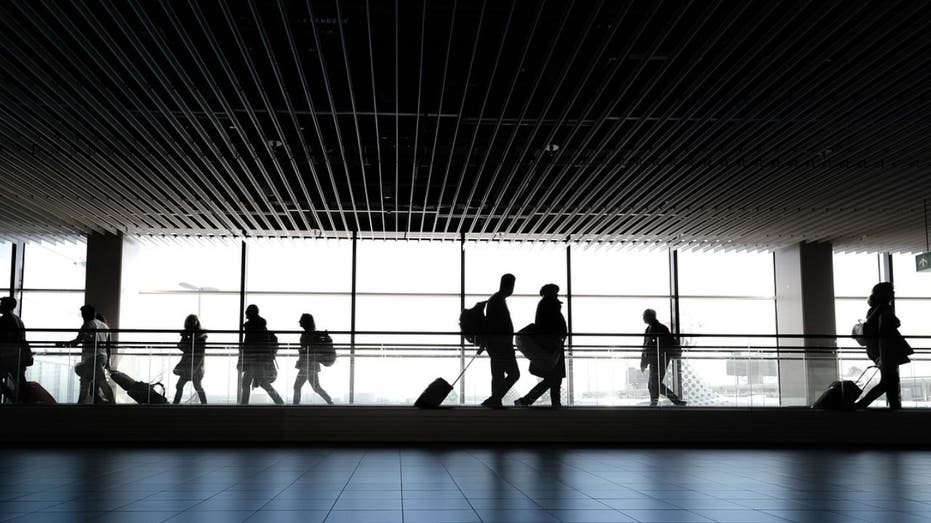Airlines Consider Weight-Based Fees: Are Heavier Passengers Going to Pay More?

The Evolution of Airline Fees
In 2008, American Airlines made headlines by becoming the first major U.S. airline to implement fees for checked baggage, introducing a $15 charge as part of a broader cost-cutting initiative. This move marked the beginning of a trend, with numerous airlines following suit and increasing these fees over time. Now, a fresh debate has emerged regarding whether airlines should introduce weight-based fees for passengers as a strategy to reduce fuel consumption and lower carbon emissions.
Samoa Air’s Bold Experiment
In 2013, Samoa Air took a pioneering step by introducing a “fat tax,” charging passengers based on their weight. However, this approach did not gain traction in the broader aviation industry.
Finnair’s Innovative Approach
Fast forward to February 2024, when Finnair launched a weight data collection initiative. Passengers at Helsinki Airport are now encouraged to voluntarily weigh themselves along with their carry-on luggage. This initiative will last three months and encompass both short flights within the Schengen area and longer international routes.
Finnair emphasizes the anonymity of this data collection, only recording age, gender, and travel class alongside weight information. The airline plans to use this data to enhance its aircraft balance and loading calculations for the years 2025 to 2030.
The Push for Weight-Based Strategies
These actions reflect a growing interest within the airline industry to explore weight-based strategies that could improve operational efficiency and potentially influence future pricing models.
Public Opinion on Weight-Based Pricing
A recent study surveyed 1,012 U.S. adults to gauge opinions on weight-based charges. Participants considered three pricing structures: a standard fare with a set luggage limit, a “weight threshold” where those over 160 pounds would incur additional charges, and a “body weight” model where ticket prices vary according to individual weight.
The results revealed that lighter passengers generally favored weight-based fees, while heavier passengers preferred the existing pricing structure. Notably, nearly half of the heavier respondents expressed openness to the concept. Younger travelers, frequent flyers, and individuals with higher incomes were more likely to support the idea of weight-based charges.
Concerns Over Fairness
Despite some support, the study highlighted concerns about fairness, with nearly 60% of respondents worried about potential discrimination. Researchers stress the importance of discussing weight-based pricing as a means to mitigate the environmental impact of air travel.
Environmental Implications of Weight-Based Pricing
The potential introduction of weight-based pricing in airlines extends beyond economic considerations, sparking discussions about environmental and social justice issues. Climate researchers assert that such a model could significantly lower carbon emissions by establishing a direct link between passenger weight and fuel consumption. It is estimated that every additional pound on an aircraft increases fuel usage, with a 1% reduction in overall weight potentially leading to approximately 0.75% fuel savings.
This compelling data presents a strong scientific rationale for implementing weight-sensitive pricing strategies. However, ethical concerns arise regarding body diversity, accessibility, and the risk of discrimination. Disability advocates argue that such pricing models could adversely affect individuals with medical conditions or physical differences beyond their control.
The Role of Technology
Emerging technologies, including advanced lightweight materials and more fuel-efficient aircraft designs, may ultimately offer alternative solutions for reducing the aviation industry’s carbon footprint. These advancements could potentially eliminate the need for weight-based pricing in the future.
Balancing Competing Interests
As the debate around weight-based pricing continues, the airline industry faces the challenge of balancing environmental accountability, economic efficiency, and a positive customer experience.
Navigating Societal Norms
While there is growing interest in implementing weight-based charges, societal norms and the potential for discrimination complicate the issue. As airlines seek innovative ways to cut fuel costs and minimize environmental impacts, any move toward weight-based pricing must thoughtfully consider fairness and public perception.
Your Opinion Matters
Do you believe airlines should adopt weight-based pricing to reduce emissions, or are there more effective methods to make air travel eco-friendlier? Share your thoughts with us.
For more tech tips and security updates, subscribe to my newsletter. Let us know any questions or stories you’d like us to cover.